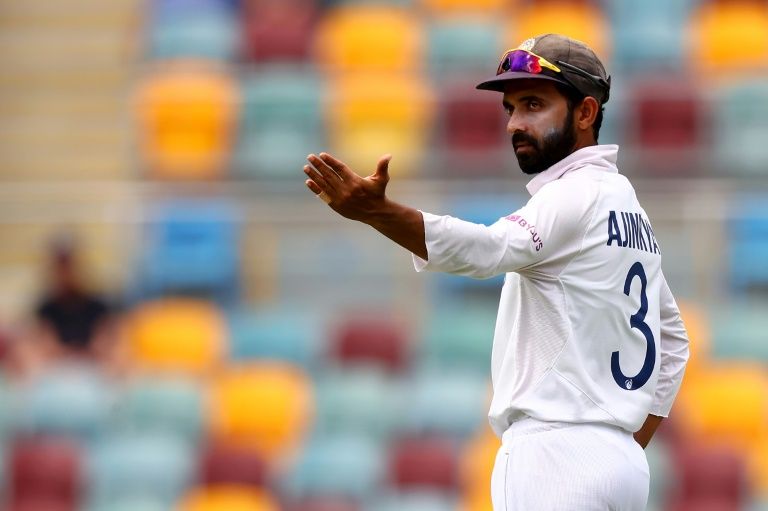Rahane’s captaincy masterclass puts heat on Kohli as England loom
New Delhi (AFP) – Ajinkya Rahane’s calm and composed leadership of India in their stunning Test triumph over Australia earned widespread praise Wednesday — and increased pressure on regular captain Virat Kohli ahead of a home series against England next month.
The whole Indian team have become national heroes for their 2-1 series victory sealed in the dramatic finale in Brisbane on Tuesday, where no team had beaten Australia in 32 years.
India coach Ravi Shastri hailed Rahane’s tactical command in the series as “simply brilliant”.
Rahane, 32, took over from Kohli after India’s humiliating opening loss in Adelaide where they were bowled out for 36 and masterminded a spectacular return against Tim Paine’s Australians.
India chased down a target of 328 with 18 balls to spare on the fifth day of the final Test in Australia’s “Fortress Gabba”.
The Times of India newspaper hailed “Ajinkya The Invincible” for his unblemished record as skipper — four wins and one draw in five Tests substituting for Kohli.
Kohli, who returned to India last month for the birth of his daughter, was among the first to pay tribute to the “grit and determination” shown by the injury-hit team as they retained the Border-Gavaskar Trophy.
Kohli will be back as captain when the first Test against England begins in Chennai on February 5. But there have been calls for Rahane to stay on.
– Ajinkya v Virat –
“I think I would have really considered keeping Ajinkya Rahane as captain,” former England skipper Michael Vaughan wrote on Twitter.
Letting Kohli concentrate on batting “would make India even more dangerous,” he added, praising Rahane’s “incredible presence and tactical nous”.
“Let Ajinkya Rahane remain the captain for Tests and Virat Kohli for white ball games,” said Vijay Lokapally, a veteran journalist and a Kohli biographer.
“The team will benefit and Virat will concentrate on just smashing the opponents.”
Coach Shastri singled out Rahane’s leadership for special praise in the Gabba dressing room team talk after the match.
“To lead the side from the position we were and then to make them bounce back and control things in the middle like the way you have done is simply, simply brilliant,” Shastri said.
India were skittled out for 36 in their second innings of the first Test and lost inside three days.
With Kohli leaving and injuries beginning to mount, nobody expected India to defy the odds and come back to win the series.
But they did, under a captain whose understated style is diametrically opposed to Kohli’s in-your-face aggression.
– ‘Calculated manoeuvres’ –
India won the second Test in Melbourne and drew the third at Sydney after batting out the entire final day for a draw to leave the series on a knife-edge at 1-1.
Further injuries to pace spearhead Jasprit Bumrah and ace spinner Ravichandran Ashwin created more problems before the decisive fourth Test.
Rahane rallied the young side including debutants in paceman T. Natarajan and all-rounder Washington Sundar.
Wicketkeeper-batsman Rishabh Pant brilliantly answered critics of his form with an unbeaten 89.
He hit the winning runs to star alongside merging fast bowler Mohammed Siraj, who claimed a five-wicket haul in just his third Test.
“This will take a while to sink in,” said former India captain Bishan Singh Bedi, who hailed the win as “by far the greatest comeback in the history of Indian cricket.”
Rahane, he added, “deserves kudos and a lot more.”
Bedi said Rahane had shown a “remarkable cool” on the pitch and organised “calculated manoeuvres” that evoked legendary captain Mansur Ali Khan Pataudi.
Pataudi led India to their first overseas Test win against New Zealand in Dunedin in 1968. They won the series 3-1 to register their first away triumph.
India have since emerged as one of the world’s top Test sides under captain including Sourav Ganguly, Mahendra Singh Dhoni and Kohli.
Disclaimer: Validity of the above story is for 7 Days from original date of publishing. Source: AFP.


